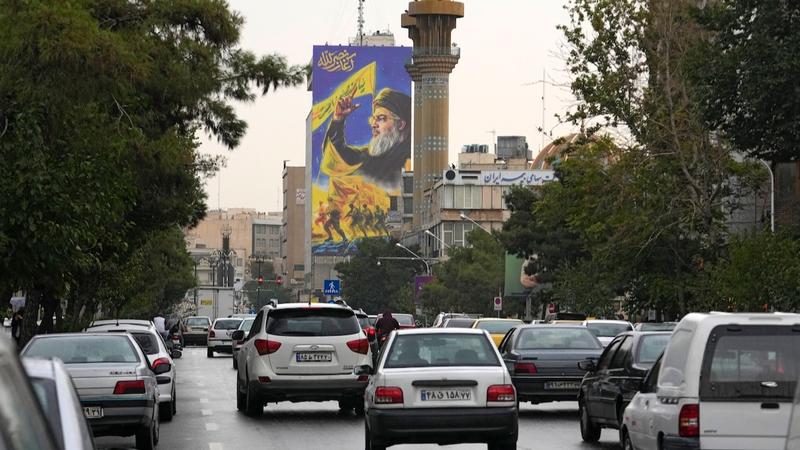Published 17:21 IST, October 1st 2024
Israel Used 80-ton 'Bunker-Buster' Bomb, Suffocated Hezbollah Chief Nasrallah To Death
Israel used US-made 80-ton bunker busting bomb which uses timed, chained explosions to penetrate the subterranean bunker in which Nasrallah was hiding.

Hezbollah chief Hassan Nasrallah, who was killed in an Israeli airstrike a few days ago, died due to toxic fumes inside his bunker after hit by a 80-ton bomb.
Nasrallah died after Israel targeted Hezbollah headquarters in Lebanon on September 27. According to reports, Israeli Defence Forces (IDF) used an 80-ton ‘bunker-busting’ bombs which are capable of penetrating fortified structures.
Israeli forces targeted Danish district housing Hezbollah headquarters. Reports further said that Nasrallah was hiding inside a bunker beneath a residential building.
What is bunker-busting bomb?
Israel used US-made 80-ton bunker busting bomb which uses timed, chained explosions to penetrate the subterranean bunker in which Nasrallah was hiding.
Speaking to Wall Street Journal, Israeli military spokesperson Nadir Shoshani said, “We had real-time intelligence that Nasrallah was gathering with many senior terrorists.”
Israel's killing of Hezbollah leader Hassan Nasrallah is a monumental and hugely demoralising blow to the group he led for 32 years, marking a significant inflection point for Lebanon and the region.
Hezbollah's announcement of his death Friday triggered tears and celebrations across the Arab world, pointing to the widespread reach and influence of a divisive man who has been at the forefront of Middle Eastern politics for decades.
The 64-year-old Nasrallah headed arguably the most powerful paramilitary force in the world — also a U.S.-designated terror organization — that is now left without a clear successor at a critical juncture. It remains to be seen whether his death will be a trigger for an all-out war between the two sides that could potentially drag in Iran and the United States.
Significant setback for Hezbollah
Speaking on this major development, Lina Khatib, an associate fellow at Chatham House, an international affairs think tank, said, “Nasrallah's killing is a significant setback for Hezbollah, not only because of the pivotal role he played in Hezbollah's strategy but also because his elimination reveals the extent of the group's vulnerability vis-à-vis Israel.”
“This will shake the confidence of Hezbollah's Iran-backed allies across the Arab world, from the Houthis in Yemen to the Popular Mobilization Forces in Iraq, as well as Iran itself, sparking a tectonic shift in Iran's network of influence in the Middle East,” she added.
It is not the first time Israel has killed a Hezbollah leader. Nasrallah took over from Abbas Mousawi, who was killed by an Israeli helicopter attack in 1992.
With inputs from PTI
Updated 17:27 IST, October 1st 2024




